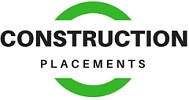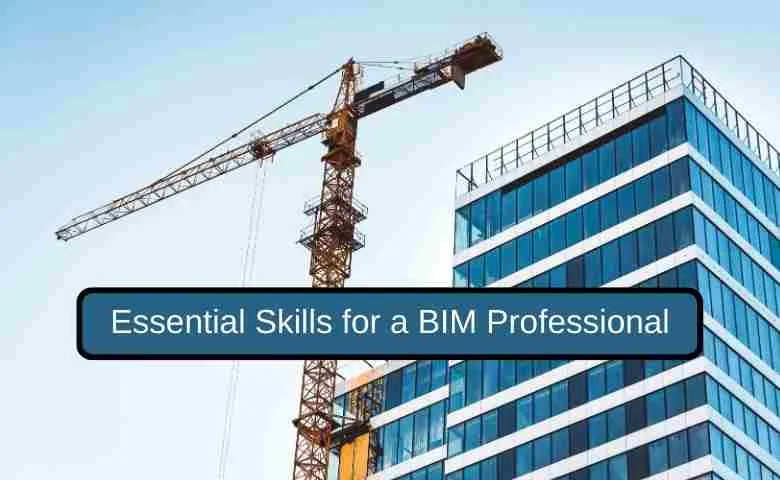Last Updated on March 19, 2024 by Admin
Building Information Modeling (BIM) is a multidimensional approach to architectural design, construction, and management. It has revolutionized how professionals in the architecture, engineering, and construction (AEC) sectors work. If you’re looking to become a BIM professional or enhance your existing skills, there are several essential competencies you should focus on. This article aims to provide a comprehensive guide on the essential skills for a BIM professional.
Table of Contents
Technical Skills
1. Proficiency in BIM Software
- AutoCAD: Basic knowledge of AutoCAD is often a prerequisite.
- Revit: This is the most commonly used BIM software.
- Navisworks: Useful for project review and simulation.
2. 3D Modeling
Understanding the basics of 3D modeling is crucial as BIM is not just 2D design.
3. Data Management
BIM projects generate a lot of data. Knowing how to manage this data is crucial for project success.
Related Ebook:
- Ebook on Building Information Modeling (BIM): An Ultimate Career Guide
- An Ultimate Guide to Launch Your Career in Digital Construction: Ebook
- BIM Job Interview Preparation Guide + 210 Interview Questions and Answers PDF eBook
- A Comprehensive Civil Engineering Job Interview Guide with 300 Interview Questions and Answers PDF eBook.
Soft Skills
1. Communication
Effective communication is key in conveying complex BIM data to team members who might not be as technically proficient.
2. Teamwork
BIM projects often involve multi-disciplinary teams. Being a team player is essential.
3. Problem-Solving
You’ll often need to find innovative solutions to complex problems.
Related Courses:
- Building Estimation Course and Quantity Surveying With Cad
- Catia V5 Zero to Hero! Catia V5 Beginners Course in CAD
- Fusion 360, Solidworks & CATIA – CAD Mastery Workshop
- Microstation – Learn 2D and 3D CAD design
Industry Knowledge
1. Construction Methods and Materials
Understanding construction methods and materials is essential for creating more accurate BIM models.
Construction Methods and Materials
2. Building Codes and Standards
Familiarity with local and international building codes ensures that your projects comply with legal requirements.
3. Sustainability Practices
With the growing focus on sustainability, understanding sustainable construction techniques is a plus.
Sustainability in Construction
Related Courses:
Specialized Skills
1. Virtual Reality (VR) and Augmented Reality (AR)
These technologies are increasingly being used in BIM for virtual walkthroughs and real-time collaboration.
2. Scripting and Automation
Knowledge of scripting languages like Python can help automate repetitive tasks.
3. Facility Management
Understanding how to manage and maintain buildings post-construction using BIM can be valuable.
Project Management Skills
1. Time Management
Managing timelines is crucial in any BIM project to ensure meeting milestones.
2. Budgeting
Understanding the financial aspects can help in the efficient allocation of resources.
Budgeting in Construction Projects
3. Risk Assessment
Being able to identify and mitigate risks can save both time and resources.
Risk Management in Construction
Quality Assurance and Quality Control (QA/QC)
1. Model Checking
Ensuring that the BIM model adheres to all standards and guidelines is crucial for the project’s success.
2. Documentation
Proper documentation can help in resolving disputes and can serve as a legal safeguard.
Interdisciplinary Collaboration
1. MEP Coordination
Understanding the Mechanical, Electrical, and Plumbing (MEP) aspects can help in better coordination among various teams.
2. Structural Integration
Collaborating with structural engineers can ensure that the building model is both functional and safe.
Future Trends in BIM
1. Artificial Intelligence (AI)
AI is increasingly being used for predictive analysis in BIM.
2. Internet of Things (IoT)
IoT devices can provide real-time data that can be integrated into BIM models for more dynamic project management.
Legal and Ethical Considerations
1. Intellectual Property
Understanding the legal aspects of the designs and models you create is crucial for protecting your work and respecting others’ intellectual property.
2. Ethics and Compliance
Being ethical not only enhances your reputation but also ensures that you are complying with the law.
Related eBooks:
- Construction jobs Interview: An Ultimate Interview Preparation Guide Ebook
- Construction Management Job Interview Guide + 200 Interview Q&A PDF eBook
- Construction Project Coordinator Job Interview Guide + 200 Interview Q&A PDF eBook
- Interview Guide & 150 Construction Project Management Interview Questions & Answers eBook
Professional Development
1. Certifications
Certifications like Autodesk Certified Professional in Revit can add value to your professional profile.
2. Networking
Joining professional organizations like the American Institute of Architects (AIA) can provide networking opportunities and keep you updated on industry trends.
American Institute of Architects
3. Continuing Education
The field of BIM is ever-evolving. Engaging in lifelong learning can keep you at the forefront of the industry.
Conclusion
Building Information Modeling (BIM) is a complex and multifaceted field requiring diverse skill sets. From mastering technical tools like Revit and AutoCAD to developing soft skills like communication and teamwork, a BIM professional must be well-rounded. Understanding the legal landscape, focusing on quality assurance, and staying abreast of future trends like AI and IoT are equally important. Professional development through certifications and networking can provide the extra edge needed in this competitive field. Finally, the importance of ethical considerations and continuous learning cannot be overstated.
Focusing on these essential skills and areas of knowledge can pave the way for a successful career in BIM. Whether you are a beginner looking to enter the field or an experienced professional aiming to enhance your skills, this comprehensive guide aims to be a valuable resource for your journey in Building Information Modeling.
Related Post:
- How to Improve Construction Team Efficiency with Technology
- How to stay up-to-date on Building Information Modelling (BIM) Trends in Construction?
- BIM Job Roles and Their Latest Salary Trends
- BIM Technician Job Description and Salary
- Self-Learning Resources for Aspiring BIM Professionals
- BIM vs. CAD: What’s the Difference? Unraveling the Complexity of Modern Design Tools
- The Evolution of BIM Technology: A Comprehensive Guide to the Latest Trends and Reports
- What is Building Information Modeling (BIM) and Why You Need to Know About It
- How BIM and AI Will Revolutionize the Construction Industry
- Comprehensive List of Careers in Building Technology: A Guide for Aspiring Professionals
- Top 15 Books for Beginners Job Seekers To Read
- How to stay up-to-date on Building Information Modelling (BIM) Trends in Construction?
- What is Building Information Modeling (BIM) and Why You Need to Know About It
- Top 50 BIM Interview Questions and Answers
- BIM Job Roles and Their Latest Salary Trends


